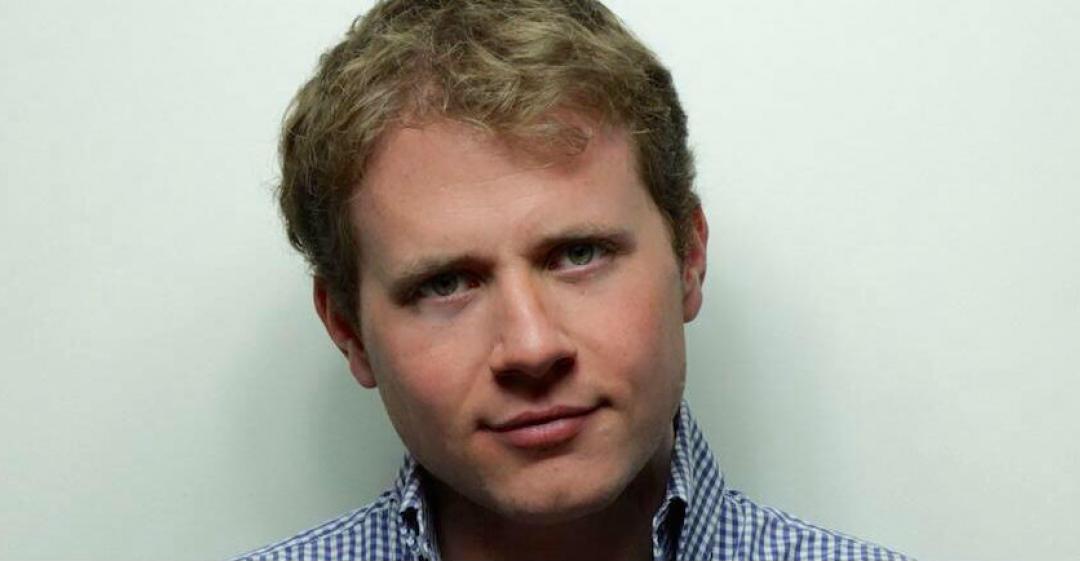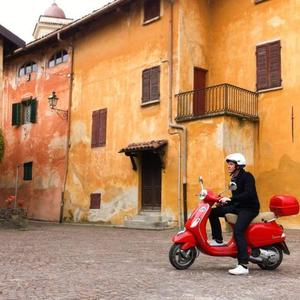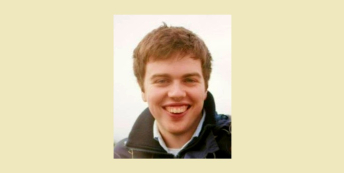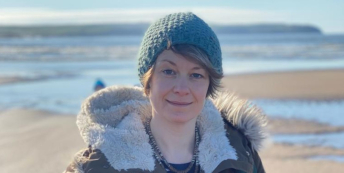“I felt stagnant and tied down... I wanted to do more with my time on this little planet of ours.”

What work were you doing previously?
Before I started on this new path of mine, I was doing what a lot of young ex-pats were doing in Spain: teaching English as a foreign language.
I quit my job to write a book, and then spent some months living at home in England working in an office in Maidenhead as a Quality Analyst. I went from one job I didn't want to do in Spain to another job I didn't want to do in my local town. At least Madrid was a big city...
What are you doing now?
Now, I'm doing an eclectic mix of things.
I'm a gastronomic food tour guide in Madrid with the company Madrid Food Tour. I'm also a travel and food writer, and, when the work comes up, a freelance Russian / Spanish translator. Lastly, I'm also doing some work as a TV presenter with the company Cuarto Creciente.
Why did you change?
I felt stagnant and tied down.
I didn't feel that my life experiences up until that point should have led to me sitting at a desk in a hot office in Spain's capital, or number crunching in front of a computer screen in a trading estate of my hometown. I wanted to do more with my time on this little planet of ours.
I wanted to look back and say "Yes, I lived".
When was the moment you decided to make the change?
I got into a funk; I wouldn't go as far as saying I was depressed, but I was listless, lost and feeling unhealthy.
I was treading water while my friends back home all had 'proper' jobs and were making good money. After the stint writing and living in the UK, I decided to head back to my beloved Madrid and have a go as a freelancer. My heart was set to Spanish even if my head had yet to work out the details.
Are you happy with the change?
The short answer is yes.
Of course nothing is perfect, but my current quibbles are only quibbles. I now have more control of my time, leaving me more opportunities to travel and write, which, despite being the least lucrative of my endeavours, is my passion. And, ultimately, I'm now doing a selection of jobs that I actually care about.
What do you miss and what don't you miss?
I miss the steady and reliable salary, though on good months I make more than I used to.
I suppose I miss the office dynamic, working with a group of people on a daily basis and the banter that goes along with it. Other than that, not a lot.
I don't miss the pointless rules and drudgery associated with offices. I don't miss the simple fact that I wasn't enjoying my day-to-day life – indeed, the vast majority of my existence on earth was spent doing something I didn't like. What could possibly be the point of that?
How did you go about making the shift?
At times it was easy and at times complicated.
I'd already struck up a professional relationship with the boss of the food tour company a couple of years before, when I was looking into the industry; when I finally went to them hoping for employment, luckily they had a position available. I found them by previously making lists of the things, regardless of training and education, that I would like to do. Food tours was something on my list.
The trickier part was all the freelance work. I had to apply to become an autónomo (self-employed person) in Spain first and then hunt around for work.
I found that the shift is, regardless of what you are doing, two-fold. The first element is practical: can you do the job, and is it a job that will pay you enough to live? The second is psychological: am I ready to leave what I'm doing and actually change? Am I prepared to take the risk?
What didn't go well? What 'wrong turns' did you take?
My wrong turn was not fully developing all the various parts of my freelance portfolio.
I have yet to establish myself properly as a translator. I could say that that part still isn't going too well. I seem to just get lucky here and there. I was focused quite hard on the writing and tours, so perhaps didn't plan too fiercely for the other elements.
How did you handle your finances to make your change possible?
In the months leading up to my shift, I saved money.
Freelancing is precarious, so to have started fresh without much money would have been folly. My other problem was the fact that I needed to move into a new flat; that meant paying deposits and setting up new service contracts for internet provision and so on. In short, I made sure I had a monetary safety net to catch me at the beginning.
What was the most difficult thing about changing?
Entering the financial unknown.
And the crushing fear that if I was wrong about my projected new life path it could all come crashing down around me. I'd then be back in the office relying on teaching English again.
What help did you get? 
Not much really.
Of course, my parents would have been there to help me if anything went wrong, and they said as much.
In Spain there is a large tradition of enchufe – a sort of 'you scratch my back, I'll scratch yours' networking type of thing. Through this I've found new jobs here and there. But, generally, it seems that I've been able to do it more or less on my own.
What have you learnt in the process?
To be proactive.
As a new freelancer it's important not to be too picky with regard to earning money. Sometimes a job was dull or boring, but I did it in order to squirrel away that money for a rainy day.
I've also learnt that if there is something I want, I have to take it. If there is something I think I'd like to do, I have to try to get there. What's the point in settling for second, third, or fourth best? I've learnt that I can do great things if I believe in myself and others.
What do you wish you'd done differently?
In retrospect, doing a Master's degree in translation might have been a sensible step.
Also, I should have joined various associations earlier in the process – the Chartered Institute of Linguists, for example.
Other than that, I simply wish I'd had the guts to do it all earlier.
What would you advise others to do in the same situation?
Don't be afraid to make a change, or do something extraordinary.
Billions of years before you existed there was nothing of you and after you pass away there will be billions more. You are one of the lucky ones with their 80 years or so to play with. Ask yourself: are you really happy going through life doing something you hate? Do you really want to look back and think 'I spent my whole life at a desk doing something that didn't interest me at all?' Probably not.
Of course, you have to mix your passions and dreams with facts and rationality. But I would say – find a way to do something that, at the very least, you actually want to do.
To find out more about Luke's work, visit www.lukedarracott.com
What lessons could you take from Luke's story to use in your own career change? Let us know in the comments below.



